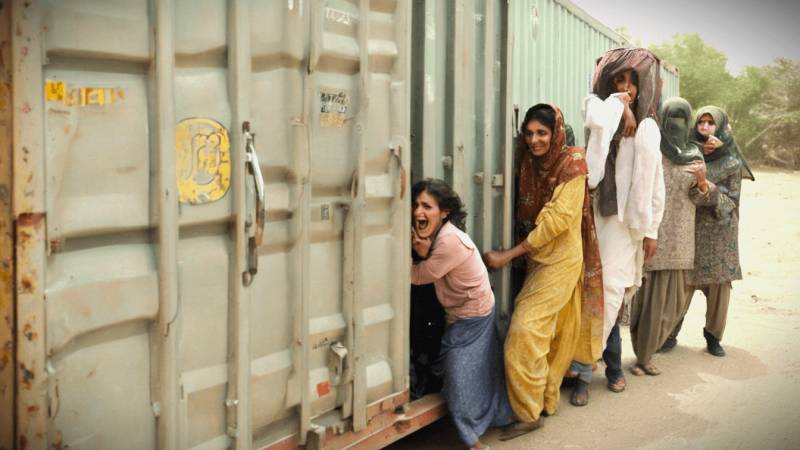
Globalisation has brought the world 'closer' to an "end of geography" as we know it. It manifests in intensified cross-border integration and exchange of goods, values and technology. However, this has also had a wide range of complex and controversial effects. It has aggravated inflation, national security, global health and humanitarian concerns. Among the challenges created by the advent of globalisation has been the spread of human trafficking - a heinous crime. The correlation between the rise of globalisation and human trafficking begs the question: What can states do to eradicate the negative consequences of globalisation? How does globalisation facilitate human trafficking?
The United Nations Office on Drugs and Crime (UNODC) defines human trafficking as the "recruitment, transportation, transfer, harbouring or receipt of people through force, fraud or deception, with the aim of exploiting them for profit." It includes: sex trafficking, forced labour, criminal exploitation, drug trafficking and organ trafficking. A tale of human trafficking can be found in almost every region of the world, and it is a grave violation of universal human rights. Men, women, and children of all ages and from all backgrounds can become victims of this crime.
While there are several laws which address human trafficking and slavery in different countries of the world, such as the Prevention and Control of Human Trafficking Rules (PACHTO, 2004) in Pakistan and the Trafficking Victims Protection Act (TVPA) of 2000, in the United States of America - the first comprehensive federal law to address human trafficking - their ability to effectively combat trafficking is debatable.
Globalisation has increased the economic gap between the developing and developed states, making it easier for traffickers to lure desperate people from poor economic states. Due to reduced trade tariffs and lenient border controls, globalisation has enabled traffickers to easily transport people across borders to fulfill a variety of human needs, including the increased demand for cheap labour in recent years, especially in the construction, manufacturing and agricultural industries, which have benefitted greatly from traffickers and have led to severe issues such as forced labour and sexual exploitation.
Another reason for the rise in human trafficking has been the lack of proper legal penalties and enforcement actions against it. The absence of strict international regulations is evident in the cases of immigration and human smuggling. Legal loopholes in anti-trafficking and anti-smuggling laws have emboldened such criminals. Furthermore, the upsurge in the ratio of crimes such as human trafficking, whether it is sexual, labour trafficking, or modern slavery, has a lot to do with lack of justice for ordinary people in our world which is controlled by the rich and powerful.
The increased demand for cheap labour, supply chain exploitation, legal loopholes, limited social support, criminal networks, and technological advancement have all immensely contributed to human trafficking
We live in the era of technology and information, where globalisation, barrier-free borders and ease of communication have facilitated human trafficking. The digital era has also expanded the reach of human traffickers. Several online job platforms, online paid survey platforms, virtual assistance websites, and communication platforms, such as backpage, kik, Facebook, skip the games etc., have become trusted tools for traffickers to create fake job opportunities and trap susceptible individuals in their malicious activities. This underscores the urgent need for digital security measures to combat human trafficking in the modern age.
Globalisation has strengthened the tourism industry, making travel more affordable and accessible. Unfortunately, this has led to increased sexual exploitation, which in turn increases sex trafficking and other types of trafficking as well. Mississippi, one of the poorest states in the United States, is significantly prone to human trafficking. Prostitution and the rate of sex trafficking here are higher (4.99 cases per 100,000) in Mississippi than in many other states of the US. Similarly, Florida has become a hub of sex trafficking due to its increased dependence on the tourism industry.
The consumption and access to pornography have increased globally and have sparked fears of increased child prostitution and sexual exploitation.
In conclusion, human trafficking is not a new problem, but the dynamics of globalisation are fuelling its growth. The increased demand for cheap labour, supply chain exploitation, legal loopholes, limited social support, criminal networks, and technological advancement have all immensely contributed to human trafficking. Efforts to address these issues require an integrated and multifaceted approach. There is a greater need for educational outreach programmes to inform individuals and communities about the manoeuvres that traffickers use, their dangers and their consequences. This underscores the importance of education in preventing human trafficking and the need for widespread awareness campaigns.
It is also crucial to maximise national security and monitoring systems that keep pace with the digital era, where it has become easier for traffickers to create fake profiles online and penetrate borders. Countries must strengthen their legal systems and combat corruption which prevents investigation of human trafficking crimes. The developing countries must be supported by the developed countries (or Global North) to improve their socio-economic conditions and provide basic necessities to people who otherwise become easy targets of human traffickers. This international cooperation is essential in the fight against human trafficking.

